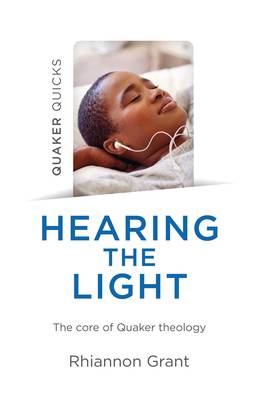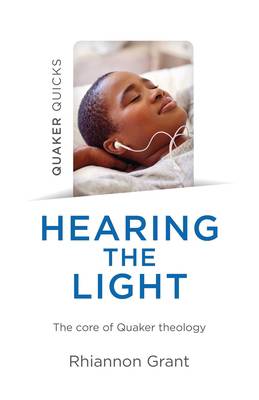
- Afhalen na 1 uur in een winkel met voorraad
- Gratis thuislevering in België vanaf € 30
- Ruim aanbod met 7 miljoen producten
- Afhalen na 1 uur in een winkel met voorraad
- Gratis thuislevering in België vanaf € 30
- Ruim aanbod met 7 miljoen producten
Zoeken
€ 10,45
+ 20 punten
Omschrijving
Quaker Quicks - Hearing the Light begins with the foundations of Quaker theology, which is based in the Quaker method of unprogrammed, silent worship. This act of gathering as a community to wait and listen to God is at the heart of Quakerism and essential to understanding Quaker theology, which is embedded in the practice as well as explained by it. Rhiannon Grant shows how Central Quaker theological claims, such as that everyone has that of God within them, that God offers support and guidance to all who choose to listen, and that Quakers as a community are led by God to treat everyone equally, resist war, and live simply, can be understood through a consideration of this distinctive worship practice. Rhiannon Grant also explores what it means to say that this form of theology is liberal - although many Quakers are politically liberal, they have also been called "conservative radicals" (Kenneth Boulding), and the liberalism involved is not mainly political but an attitude towards diversity of thought, opinion, and especially religious belief. While united by the practice of unprogrammed worship, Quakers have no written creed and no specific beliefs are required of members. Instead, there is a prevailing attitude of continued searching, an acceptance that new evidence may appear, and a willingness to learn from others, including members of other faith communities. At a time of great religious and political division, this radical approach to faith and learning that Grant sheds light upon, has never been more prescient.
Specificaties
Betrokkenen
- Auteur(s):
- Uitgeverij:
Inhoud
- Aantal bladzijden:
- 80
- Taal:
- Engels
Eigenschappen
- Productcode (EAN):
- 9781789045048
- Verschijningsdatum:
- 1/10/2021
- Uitvoering:
- Paperback
- Formaat:
- Trade paperback (VS)
- Afmetingen:
- 140 mm x 211 mm
- Gewicht:
- 113 g

Alleen bij Standaard Boekhandel
+ 20 punten op je klantenkaart van Standaard Boekhandel
Beoordelingen
We publiceren alleen reviews die voldoen aan de voorwaarden voor reviews. Bekijk onze voorwaarden voor reviews.











